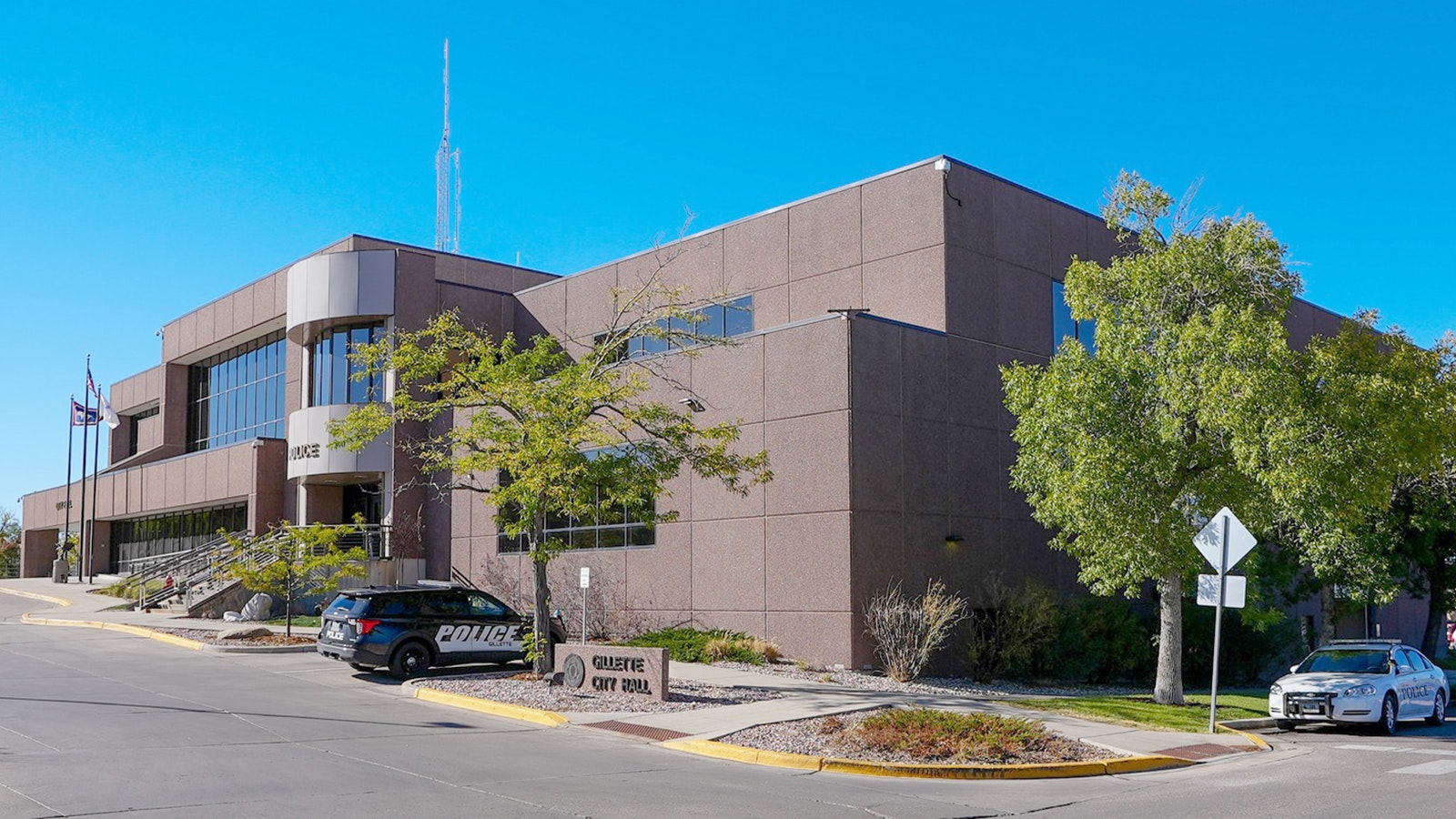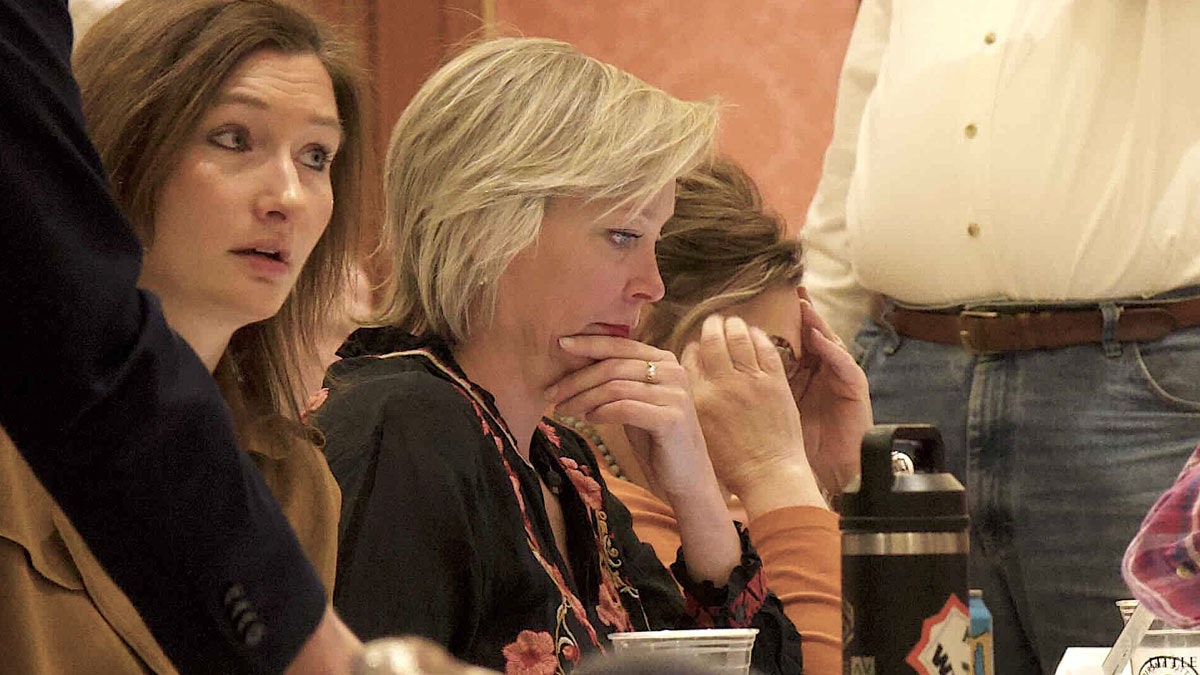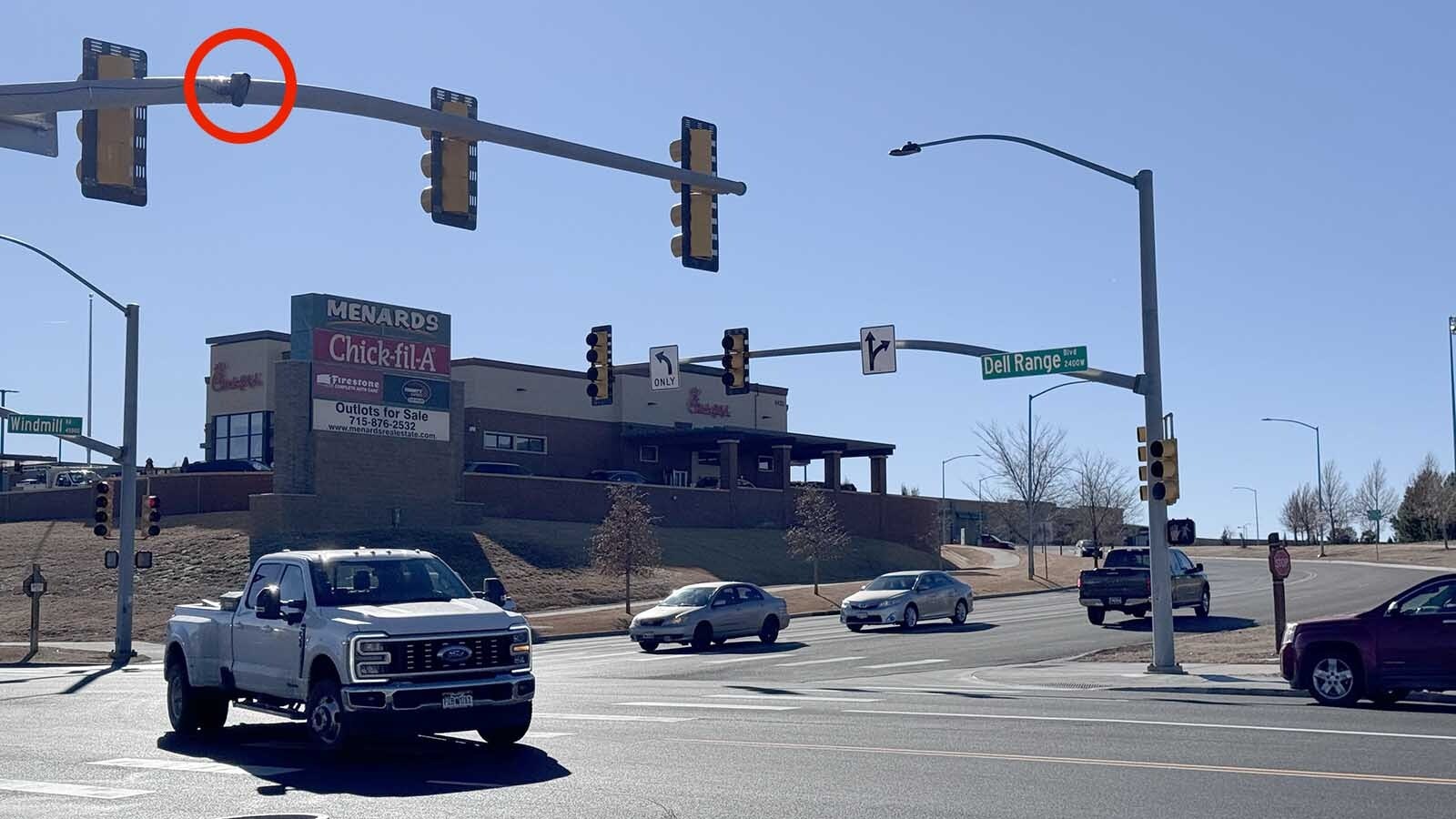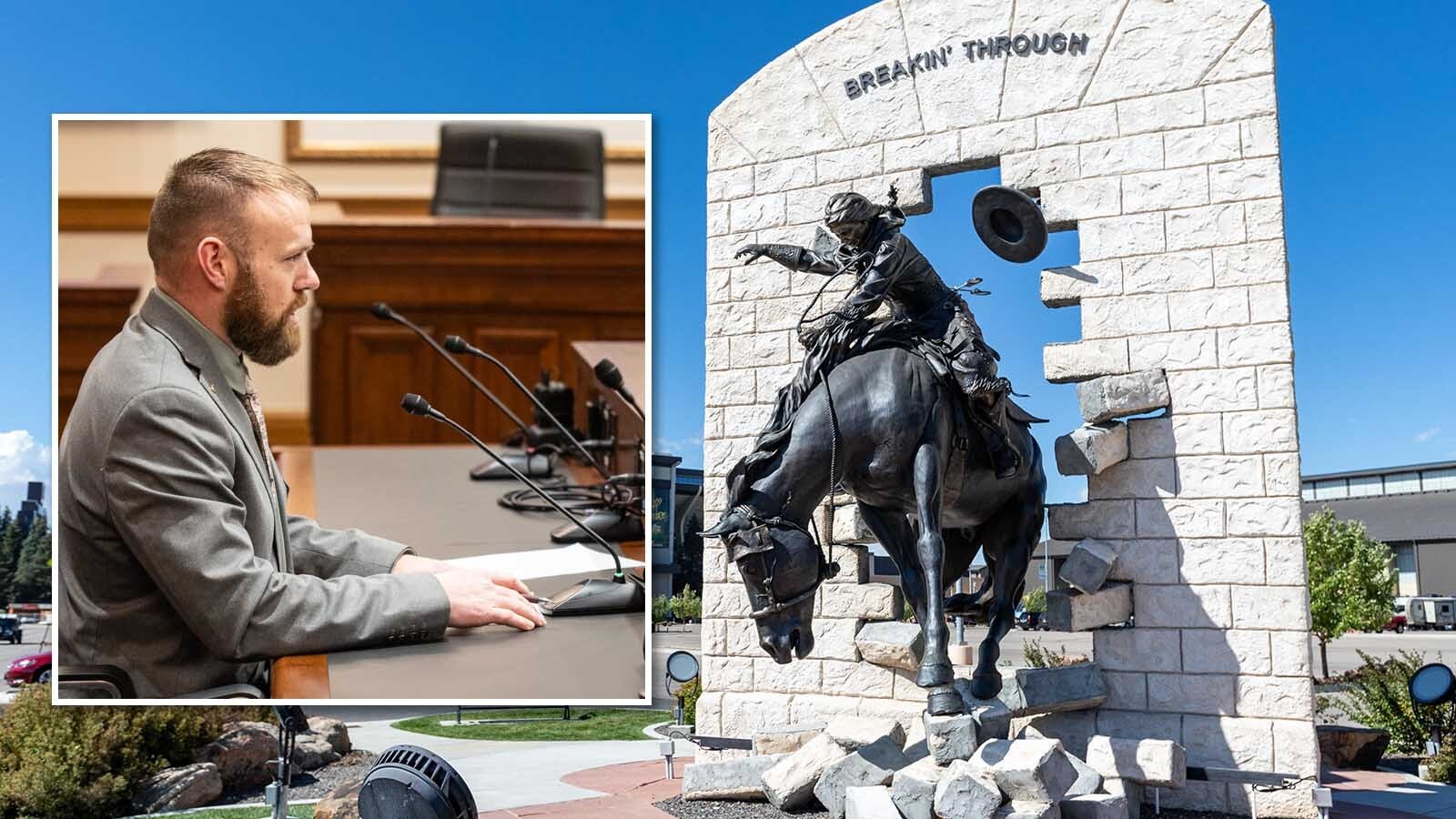Debate over an anti-hate crime ordinance being considered by the Gillette City Council has taken a somewhat conspiratorial turn.
Resident Ed Sisti says the proposed ordinance was sprung upon residents with little warning.
“I don’t think there was anything statutorily they did wrong, but it is a transparency problem we’ve had an issue with for a long time,” he said.
Wyoming MassResistance, a Gillette-based conservative group of which Sisti is a member, recently submitted a public records request about the origin of the anti-hate crime ordinance.
City Administrator Hyun Kim, who has announced his pending resignation, talked with resident Christy Gerrits about the ordinance five days before the legislation was first introduced to the council, which the group says is suspicious.
In her April 27 email to Kim, Gerrits thanked him for his service and said she has been, “battling the forces which have made your life difficult, and I appreciate your standing up for what is right as much as you could.”
Sisti finds it unethical that a member of city staff would talk about a proposed ordinance before it was first discussed in council. Although Sisti said this type of activity is “normal for Gillette,” he said it contradicts an effort promoted by City Attorney Sean Brown for better public transparency.
“One could also conclude that the city council and/or city staff wanted to get lots of supporters into the city council chambers for this agenda item,” he said in an email. “This is bad government practice, to say the least, as well as highly unethical, and undermines any major tenets of transparency.”
Nothing ‘Sprung’ On Anybody
But Kim told Cowboy State Daily the ordinance had been in the works for a number of months and was even briefly brought up during a council meeting in mid-April.
At that meeting, local resident Dean Vomhof inquired about it before it was formally introduced.
Council member Trish Simonson, who opposes the anti-hate ordinance, said when Vomhof brought it up at this meeting, she didn’t know it was about to be introduced soon, but was aware it was being worked on.
“I don’t think there was anything meant to be sneaky,” she said.
What Does It Do?
The proposed “malicious harms” ordinance would add a specific criminal charge for offenses believed to target people for their race, color, religion, sex, sexual orientation, gender identity, gender expression, ethnicity, national origin, ancestry or disability.
Sisti said it’s unnecessary and creates an extremely hard-to-prove hurdle of “intent” to commit a crime.
“How do you prove intent unless you have a note posted on a website saying, “I want to kill this person,” he said. “The only one who knows intention is God himself.”
He believes the city wants to make itself eligible for certain federal grants by having hate crime legislation on the books.
Kim said he helped develop the ordinance upon a directive from city council members, like President Billy Montgomery, who previously told Cowboy State Daily he was responsible for bringing the ordinance.
“I can’t speak for the city. My job is simply to execute the policy,” Kim told Cowboy State Daily.
Kim and Simonson said the first discussions about the ordinance were in January when city staff and council met with staff from the city of Cheyenne to learn about its hate crime ordinance.
“They warned us that putting these types of things in place should not be taken lightly,” Kim said.
Kim said Gillette’s hate crime ordinance was based largely off a similar one in Casper.
Kim’s Law?
When Vomhof accused Kim of being the mastermind behind the legislation at the second reading of the ordinance on May 16, the City Council cut him short and chided him for criticizing a member of staff.
Sisti believes Kim tried to bring a “woke” agenda to Gillette.
“This was the purpose of his hiring, to turn Gillette into a more woke community,” he said.
In April, Kim announced he had accepted a job as a deputy city manager for Tacoma,Washington.
Tacoma City Manager Elizabeth Pauli announced that Kim “has a record of leading out on anti-racist systems transformation and advancing diversity in local government employment” in his city leadership positions and as a board member of the International Network of Asian Public Administrators.
“I wish this lovely community well and more importantly, no matter what happens, whether the legislation passes or fails, I hope the community feels comfortable to have dialogue about it,” Kim said.
Hate And Inclusion
In his response to Gerrits, Kim said he hopes the “fear and hate rhetoric we are seeing throughout the country will subside one day” and that no solutions are being provided to these problems besides more talk.
In 2015, a “Stop Islam in Gillette” group formed to oppose a mosque that was built in the city. According to the Gillette News Record, 157 people joined the group on Facebook.
Most of the mosque members are part of the local Khan family, which has roots in Wyoming dating back to the early 1900s.
Kim was hired by former Gillette Mayor Louise Carter-King, who was mayor at the time the mosque was protested.
Carter-King made a public statement that the mosque was welcome in her city and indicated her administration would not play a role in discriminating against certain systems of belief or prohibit certain people from moving into her community, according to a 2015 Gillette News Record story.
“This (Islam) is not something we should be afraid of. This is something we should support, with this being a country of rights,” Fuad Khan told the News Record in 2015. “I want every human to have some sort of connection with God, no matter how he does it.”
In response to the burning of a Quran by the anti-Islam group in 2016, the city of Gillette passed its resolution condemning discrimination in city limits.
Ariane Jimison, a lesbian who co-owns a popular pizza restaurant in Gillette, read a statement to the council supporting the hate crime ordinance at its first reading. Jimison said she and her partner’s business — which has consistently been chosen as one of Wyoming’s best — has received various violent and vulgar threats.
Kim said if the ordinance passes, he will not look at it as part of his legacy with the city of Gillette that dates back to 2021.
“If it passes, the credit goes to the courageous council members willing to try something like this,” he said.
Gerrits’ Note
In her email to Kim, Gerrits expressed empathy for the city administrator about an anti-semetic flier that he and other people in his neighborhood had received shortly beforehand.
Although Kim said everyone is entitled to free speech, he said he was bothered by the literature and said it doesn’t help the community.
Gerrits agreed.
“I am deeply sorry that you received the hateful flier last Saturday,” Gerrits wrote to him in the April email. “I sure wish we could find out who did it and string them up.”
Sisti found it disturbing and hypocritical that a person advocating for anti-hate crime legislation would advocate for violence against someone who commits those acts.
“Isn’t the point of this ‘hate crimes’ ordinance to punish people who engage in threats of violence against others?” Sisti questioned. “The biggest cheerleader for this ordinance should be the first one charged under this ordinance, if it passes into law.”
Gerrits admitted she used “a poor choice of words” and was only trying to convey to Kim her disappointment that he received the antisemitic message.
“I wanted to emphasize to Mr. Kim how horrible I thought that was,” she said.
Kim thanked Gerrits for her note and described Gillette as “an amazing community” that “will continue to thrive with such amazing residents like yourself who understand what community means.”
He clarified to Cowboy State Daily he was thanking her for a comment she made earlier in the letter expressing disappointment that he was leaving Gillette to take the job in Washington.
Kim, a Korean American, said the decision to take the job has nothing to do with the ordinance proposal, although he has experienced a few minor incidents of discrimination.
“In the two years I’ve lived in Gillette I’ve had a wonderful time,” he said. “My only regrets is that I have to leave Wyoming.”
Boiling Point
Carter-King resigned as mayor in 2022 after more than 400 pages worth of texts and screenshots were released of text messages she sent making disparaging remarks about public and private people.
Sisti believes Kim’s conversation with Gerrits rise to a “similar” level.
“Here again they’re doing the same thing,” he said.
During the May 16 meeting, Gerrits said, “We’ve worked long and hard on” the legislation, which Sisti believes is evidence she worked with city staff to draft the ordinance.
Gerrits told Cowboy State Daily she was making reference to a 2016 resolution she worked on with a few council members condemning discrimination in city limits
Sisti also believes Gerrits’ note proves that she and Kim were working together to get a big supportive turnout at the first reading of the ordinance. At that meeting there was significant public input from those who support and oppose the ordinance.
At the second meeting May 16, there were more people who spoke in opposition to the ordinance than those who supported it.
Sisti, who lost his bid for City Council in 2022, believes the vast majority of Gillette residents oppose the ordinance. Montgomery and Kim believe it’s closer to a 50/50 split.
“It’s just not making sense to me as far as what the community wants,” Sisti said. “It’s what the political establishment wants, definitely what they want.”
Tuesday’s Meeting
The proposed ordinance passed 4-3 on its first and second readings. A third and final reading is Tuesday, and there could be some potential fireworks.
Although Montgomery doesn’t expect any of the council members’ votes to change, Mayor Shay Lundvall, a voting member of the council, could potentially veto the legislation if it passes. Lundvall opposes the ordinance and voted against it twice.
Kim said a mayor’s veto hasn’t happened in Gillette in more than 20 years.
Montgomery believes Lundvall has the right to use his veto power, but questions what vote margin it would take to override his veto, and said Brown is studying the matter.
According to the Wyoming Association of Municipalities Mayor-Council 2018 handbook, a mayor can veto any legislation but cannot vote in any ensuing vote to override the veto. To override a mayor’s veto, a two-thirds majority is required in Wyoming.
Montgomery said he would be “sad” if Lundvall were to veto a passed ordinance.
“I think the council has spoken,” he said. “(In that situation) the council has voted for it three times.”
Without Lundvall’s vote, there would be six voting members in an attempt to override the veto. Assuming the council members stay consistent with their prior votes, in the event of a veto override vote, the four supporters of the ordinance would most likely still win 4-2.
One of the main issues brought up by Sisti and other residents opposing the ordinance is their belief that it creates a special class of people for protection.
Sisti has a particular problem with the aspect of the ordinance that lists all the eligible categories for receiving hate crimes like race, color, religion, sex, sexual orientation and ethnicity. He believes this should end after, “No person shall intentionally incite or produce imminent lawless violence directed against any other person.”
“That’s what we pushed for … that it would just say ‘any group,’ but they won’t do that,” Sisti said. “By articulating the groups it creates for me a conundrum.”
When asked about Sisti’s suggestion, Montgomery said it’s too late now to make that change.
Contact Leo Wolfson at Leo@CowboyStateDaily.com





